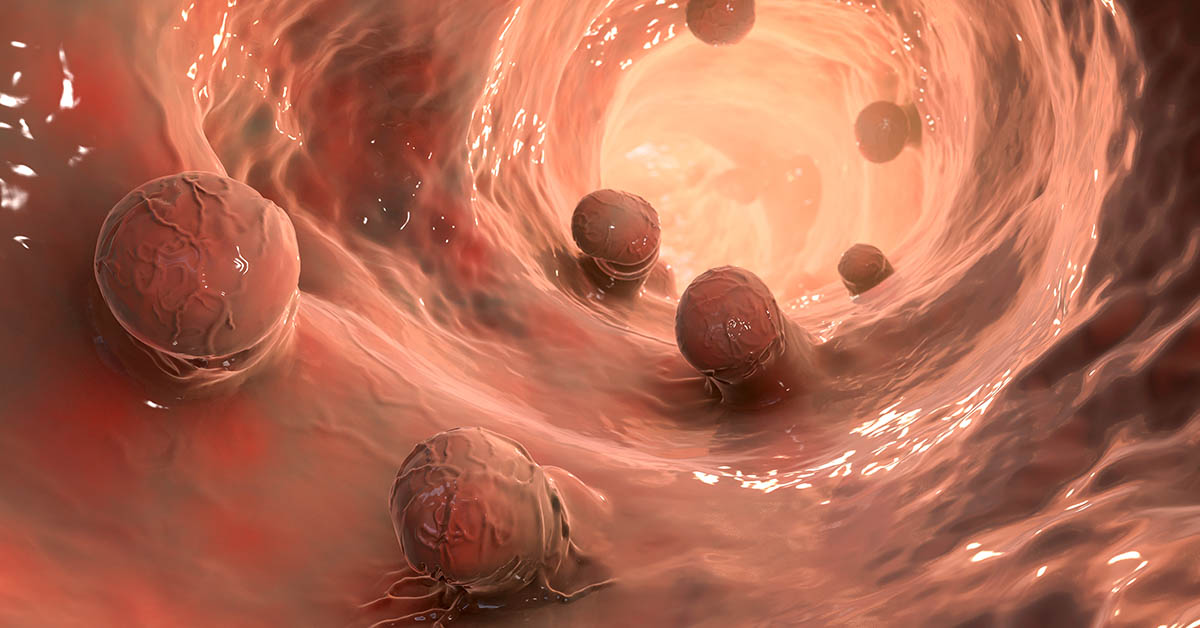Colon cancer rates are on the rise, especially in people of increasingly younger age. This is why it is critical that we start to educate ourselves more on the colon, the causes of colon cancer, and the signs and symptoms that you may have of this scary illness. One of the early warning signs that you could be at risk of developing colon cancer is colon polyps. What are these polyps, however, and how do you know if you have them? This is everything you need to know about colon cancer, colon polyps, and how to protect yourself.
What are colon polyps?
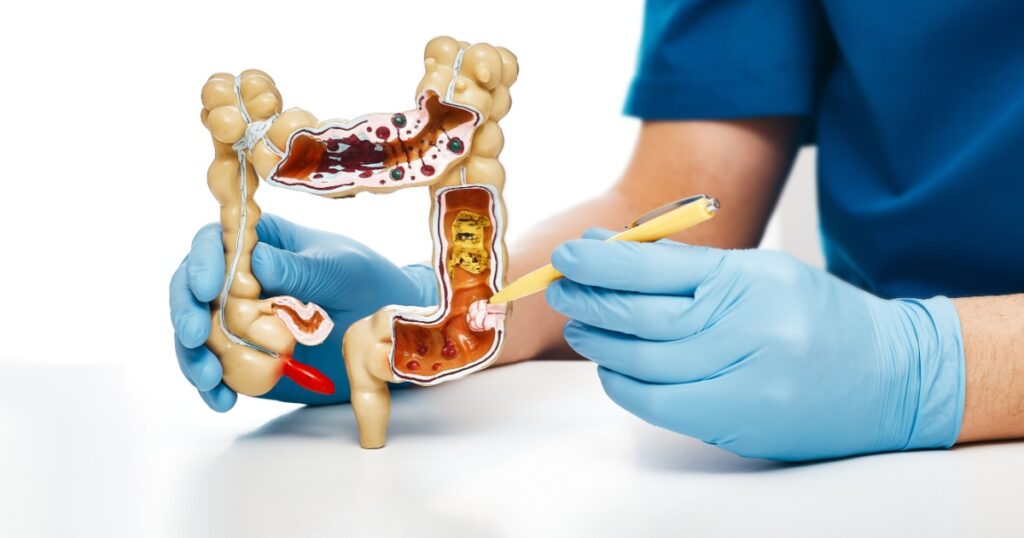
Colon polyps are abnormal growths that can occur anywhere along the gastrointestinal tract. Specifically, they develop within the lining of the colon, also known as the large intestine. Polyps can vary in size and shape, and their classification depends on their histology, which is determined by microscopic examination of the tissue after removal. There are two main types of polyps based on shape: sessile polyps that grow along the inner lining of the colon wall, and pedunculated polyps that protrude into the colon on a short stalk. (1) Not all polyps are cancerous. That being said, it is important to have any polyps removed because they can become cancerous over time. The majority of colon polyps are benign, but some may contain precancerous cells or even be cancerous themselves. Regular screenings for polyps are essential, especially if you have a family history of the disease or other increased risk factors. Knowing the signs that you may have will also help you to get them taken care of before they become a problem.
Read More: Your Stool Shape Could Be a Symptom of Colon Cancer, Doctors Warn
8 Signs of Colon Polyps

It would be great if our bodies could talk to us and tell us when something is amiss. While it may not be able to communicate with words, it does send us signals daily that can tell us a lot about our health. The problem is many of us aren’t listening, or at the very least, don’t know how to interpret the signals. These are eight signs that your body is telling you that you may have colon polyps.
1. Rectal bleeding and blood in the stools
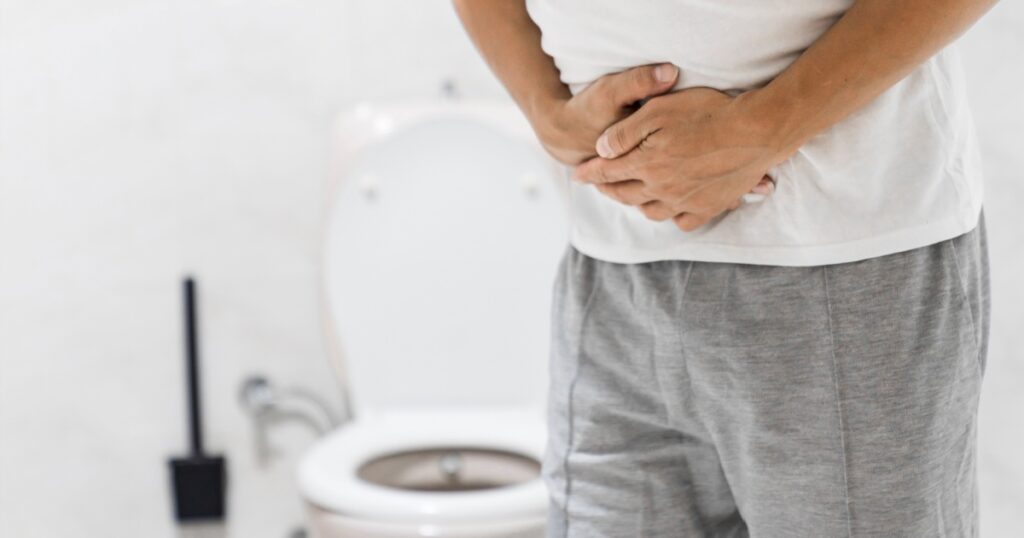
While most colon polyps are asymptomatic, rectal bleeding or blood in the stools can be an indication of their presence. Blood may be bright red or appear as dark, tar-like stools.
2. Changes in bowel habits

Colon polyps may cause alterations in bowel movements, such as persistent diarrhea or constipation. Consider keeping a journal of your bowel movements to track them more accurately. This will make it easier to know if something is off. There are plenty of applications available to help you do this.
3. Abdominal pain or discomfort

Some individuals with colon polyps may experience abdominal pain, cramping, or discomfort that persists. Any time you have persistent pain or discomfort in any part of your body, you should speak with your doctor. Whether serious or not, why live in discomfort when you don’t have to?
4. Anemia

Chronic or recurrent bleeding from colon polyps can lead to iron deficiency anemia, resulting in fatigue, weakness, and pale skin. A routine blood exam can also determine anemia. If your iron levels are low, speak to your doctor.
5. Unexplained weight loss
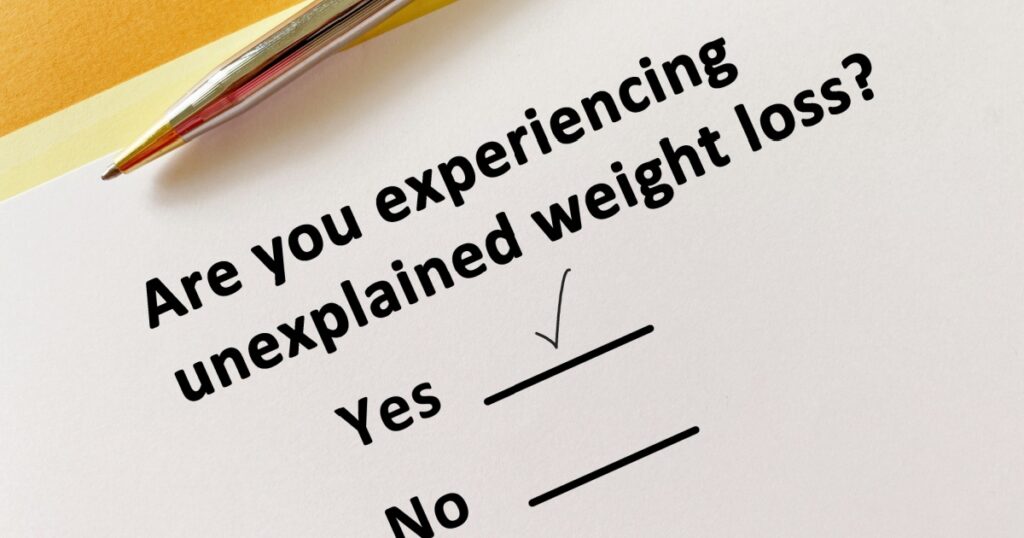
Unexpected weight loss, aka weight loss with no lifestyle modifications to cause it, is not a good thing. Weight loss that occurs without any apparent cause can sometimes be associated with colon polyps. It can also be a sign of many other diseases and cancers, so speak with your doctor right away.
Read More: Cancer Vaccine Shows Promise, Helped Kill Cancer Cells in Patient
6. Bowel obstruction

Larger polyps can obstruct the colon, causing constipation and bloating. If you feel as though you are having trouble going to the bathroom, talk to your doctor. They can help determine the cause.
7. Narrow stools

Polyps that grow large enough can narrow the passageway of the colon, leading to thinning of stool. These narrow stools will often become pencil-like in their appearance or thickness.
8. Feeling of incomplete bowel movement
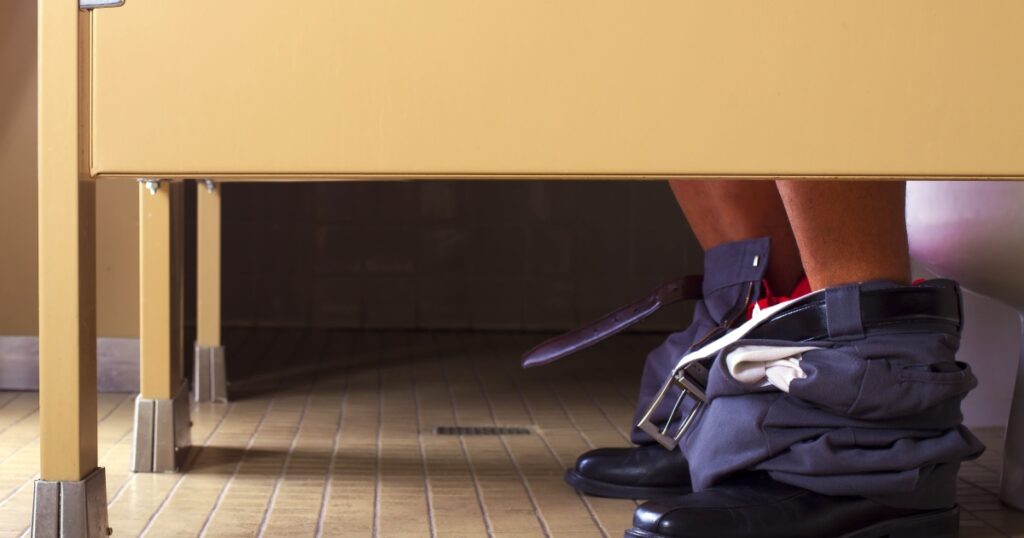
Some individuals with polyps may have a persistent sensation of incomplete evacuation after passing stool.
4 Signs that Polyps Might Be Cancerous
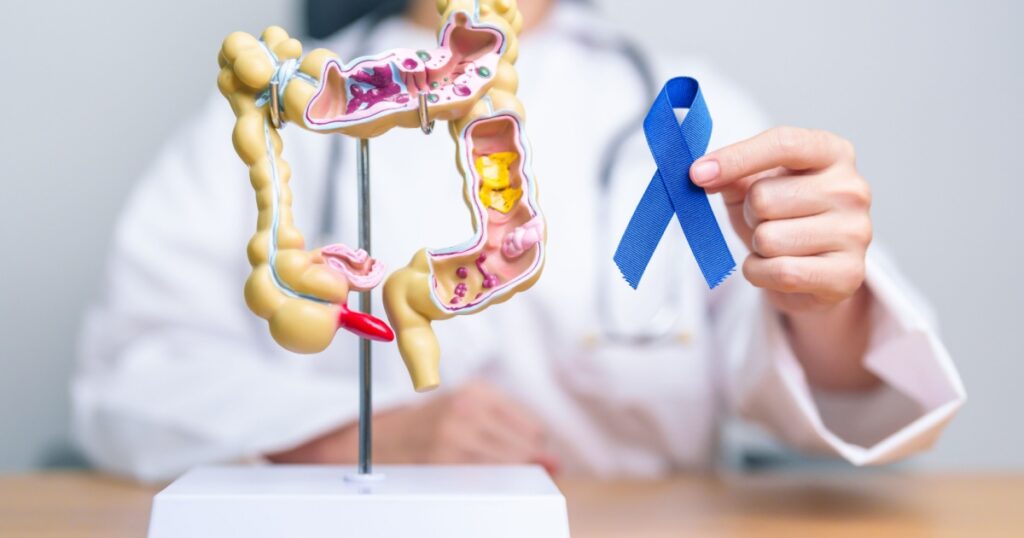
As already mentioned, not all polyps are cancerous. In fact, at first, they are quite often benign. The problem is that they all have the potential to become cancerous. These are four signs that you have polyps that have already become malignant.
1. Large size
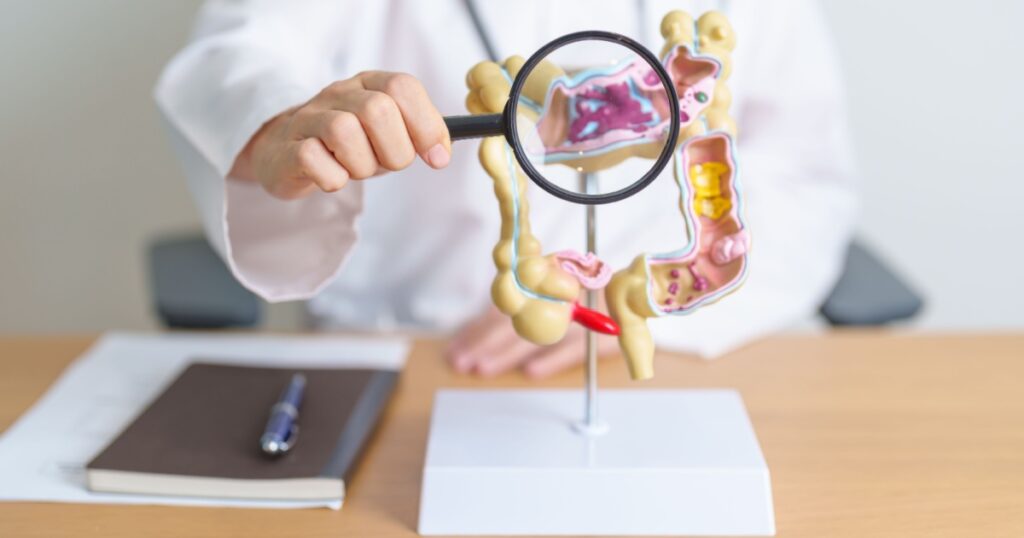
The size of a polyp is a crucial factor in determining the likelihood of cancer. Generally, polyps that are 1 cm or larger have a higher chance of being cancerous, although even smaller polyps can contain cancerous cells.
Read More: 3 Year Old Girl Dies of Rare Cancer After Being Initially Misdiagnosed
2. Fixed or depressed

Polyps that are fixed to the colon lining or have a depressed appearance may be more likely to be malignant. Such polyps may be challenging to remove during colonoscopy.
3. Blockage of stool
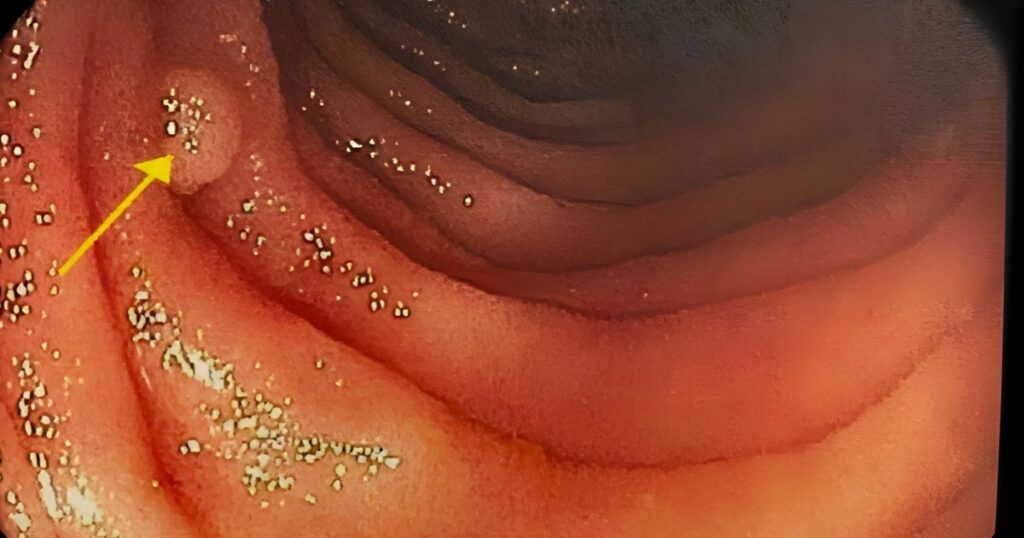
When a polyp grows too large, it can obstruct the colon, causing difficulties with bowel movements and constipation.
4. Bleeding

Fragile polyps may bleed, resulting in either visible blood in the stool or dark, tar-like stools. Bleeding from a polyp can be an indicator of cancerous growth.
Understanding Colon Cancer

Colon cancer is a slowly developing condition that can arise from untreated or precancerous colon polyps. It is crucial to detect and remove polyps early to prevent the progression of cancer. Regular screening, such as colonoscopies, is essential for early detection, especially for individuals at higher risk, including those with a family history of colon polyps or colon cancer. (2)
The Bottom Line
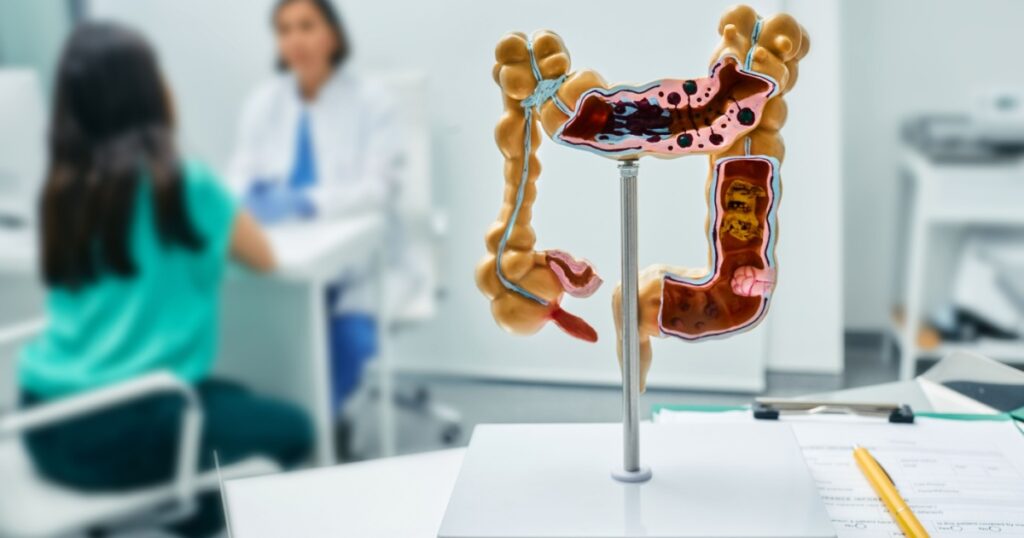
Colon polyps are common and often benign growths in the colon lining. However, some polyps have the potential to develop into colon cancer if left untreated. Recognizing the symptoms of colon polyps, such as rectal bleeding, changes in bowel habits, abdominal pain, and unexplained weight loss, is important for early detection. Additionally, understanding the signs that polyps may be cancerous, such as their size, appearance, blockage of stool, and bleeding, can help guide appropriate investigation and treatment. Regular screening and timely removal of polyps are crucial to prevent the progression to colon cancer and ensure optimal health.
Read More: Brain Cancer Treatment Shows Promise As Tumor Almost Disappears in 5 Days
Sources
- “4 Signs Your Colon Polyps May Be Cancerous.” Good Rx. Valerie Emuakhagbon, MD. August 10, 2022.
- “What Is Colorectal Cancer?” American Cancer Society
